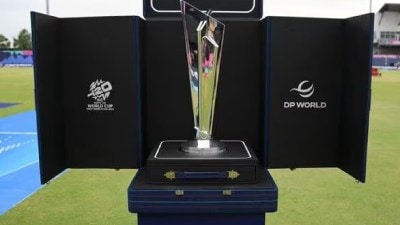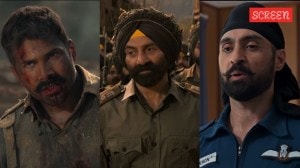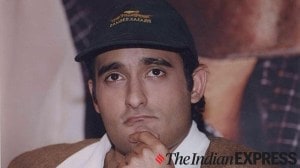Show them the finger
Beginning today, 670 million Indians, voting over a three-week, five-phase election, will elect their government and to that extent shape th...

Beginning today, 670 million Indians, voting over a three-week, five-phase election, will elect their government and to that extent shape their immediate future. A fourth of the 14th Lok Sabha 8212; 140 seats of 543 8212; will be up for election on Day One. Senior ministers L.K. Advani, Nitish Kumar, Yashwant Sinha, a former prime minister H.D. Deve Gowda, one-time state satraps Ajit Jogi, Giridhar Gamang, all-time mavericks P.A. Sangma and folk heroes Bhupen Hazarika: April 20 is judgment day for just so many A list aspirants. Even so, in the larger reckoning, the success of this election 8212; as indeed, of any free and fair election 8212; will not be seen in terms of individual achievements, by the victory or defeat of a political celebrity or a celebrity politician and it is becoming difficult to tell them apart but by a more basic question: Did you turn out to vote?
Political theory abounds with definitions of democracy. In the Indian experience, it is simply a system that makes very few demands of its people. India is, for the most part, a relaxed society. It doesn8217;t make it obligatory for its young men and women to serve in the army. It doesn8217;t force you to stand on the roadside and wave flags each time some supreme leader drives past. It doesn8217;t even call upon you to take a pledge of citizenship, subsume every other identity, religious or cultural, under the overwhelming rubric of 8220;Indian8221;. All it wants of you is your vote, just once, every few years or so. As such, the act of voting is not a ritual, it is an article of faith. It is this philosophy that underpins President A.P.J. Abdul Kalam8217;s exhortation: Go out and vote. This finds an echo in the Indian Express Group8217;s 8216;Show them the Finger8217; initiative 8212; an attempt to nudge the citizen 8212; especially the young 8212; in the direction of his or her neighbouring EVM centre.
For those who haven8217;t experienced dictatorships or Saddam Hussein-style elections 8212; where every voter votes and votes for the only candidate 8212; democracy may sometimes seem a bit of a yawn. Indeed, it lends itself to boring attitudes and facile questions. Unlike, say, the United States where the affluent and educated vote in larger numbers than others 8212; fulfilling their role as the vanguard, it would appear 8212; upper class, urban Indians tend to treat election day with a cynical apathy. They settle into holiday mood, exclaiming, 8220;But does my vote count?8221; The answer is simple enough: Your vote counts only as much you want it to. In the broader view, to walk to the polling booth is to indulge an emotion 8212; anger against an incumbent, passion for a party, belief in a candidate. Above all, it is a celebration of being Indian. There can be no better reason to vote.
- 01
- 02
- 03
- 04
- 05































